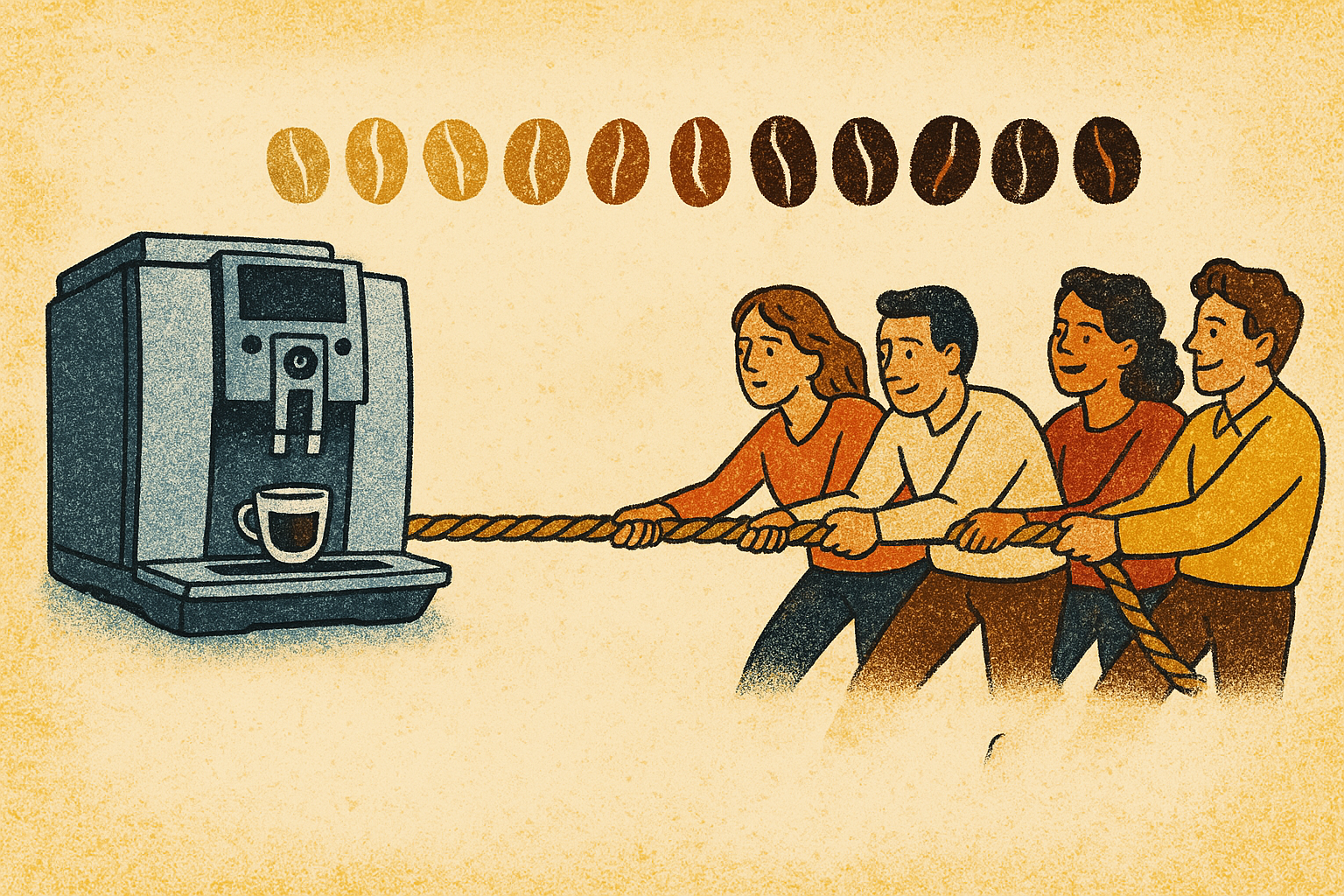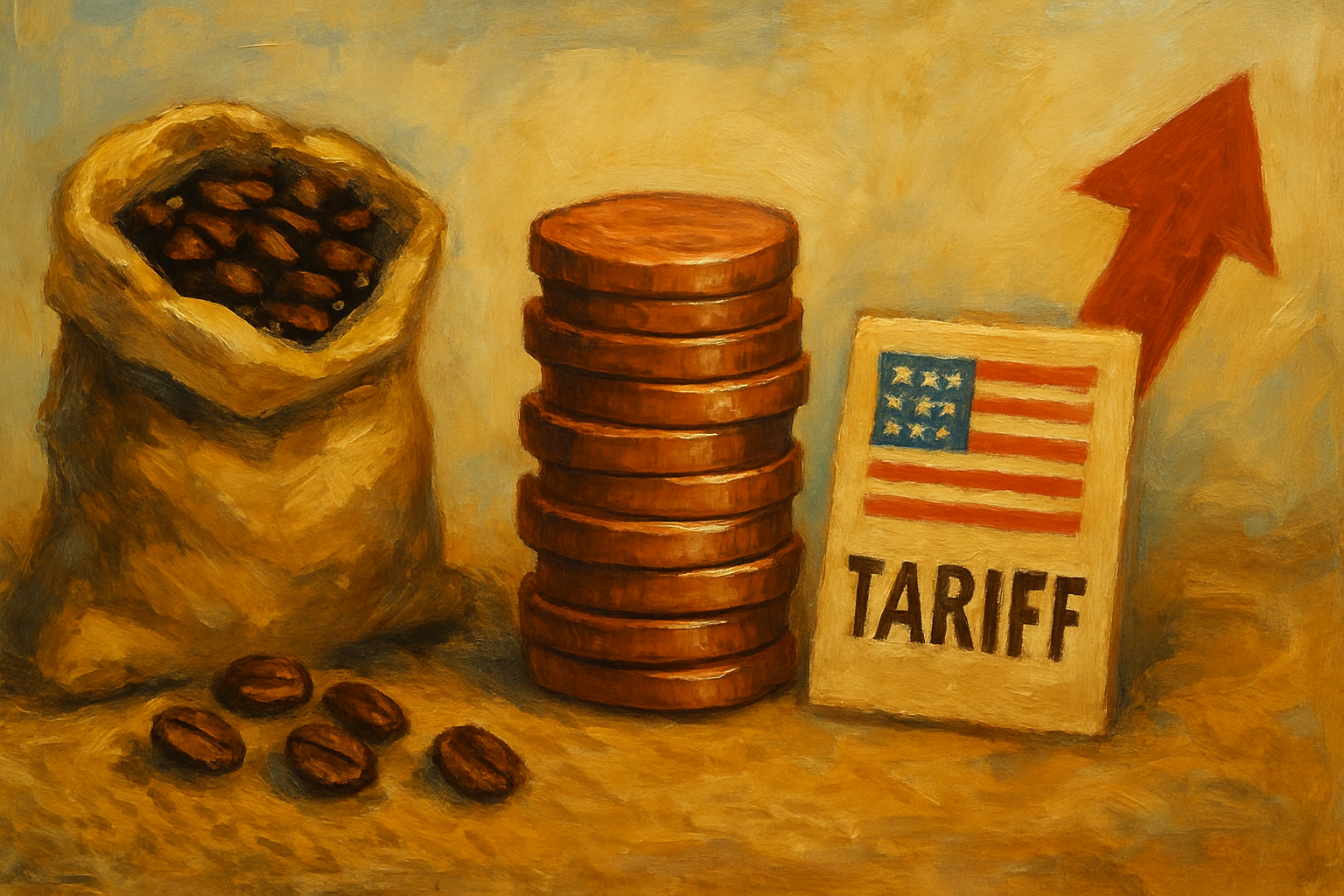Pull out your owner’s manual for any super-automatic espresso machine and you’ll likely find a warning: Do not use oily beans. The reasoning? They’ll clog the grinder. They’ll gum up the works. They’ll wreak havoc on your pristine machine.
I’ve owned a Jura X8 at home for four years now. My go-to coffee? Espresso Noir,a blend that includes dark-roasted beans with visible surface oils. That’s no accident. Traditional espresso roasts are dark. It’s the roasting process itself—specifically, roasting past second crack—that pulls those oils to the surface. So when a manufacturer tells you to avoid oily beans, they’re essentially telling you not to use traditional espresso beans in your espresso machine.
I'm not picking on personal preferences. If you prefer light or medium roasts for your espresso, have at it! Taste is personal and you should absolutely drink what you enjoy. (Our medium roast Ethiopia Yirgacheffe makes a great espresso!)
So why does the manual warn about dark-roasted beans? I'm going to get a little salty here, so brace yourself: manufacturers don’t want support calls. They don’t want returns. They don’t want to replace grinders that got jammed because someone ignored the cleaning schedule. So they shift the blame to the coffee. Their workaround? Tell everyone to use beans that leave less residue. Problem “solved," at least for them.
But here’s the real fix: Use the coffee you love and clean the machine like you're supposed to. The same manual that tells you not to use oily beans also tells you how to clean the machine (and it's usually actually pretty easy.) My Jura machine? With four years of daily use in a six person household using medium-dark beans, I haven't hit a single issue.
This machine works for me. Not the other way around.
So drink what you like. Take care of your machine. And don’t let fine print dictate your flavor.
Brian



